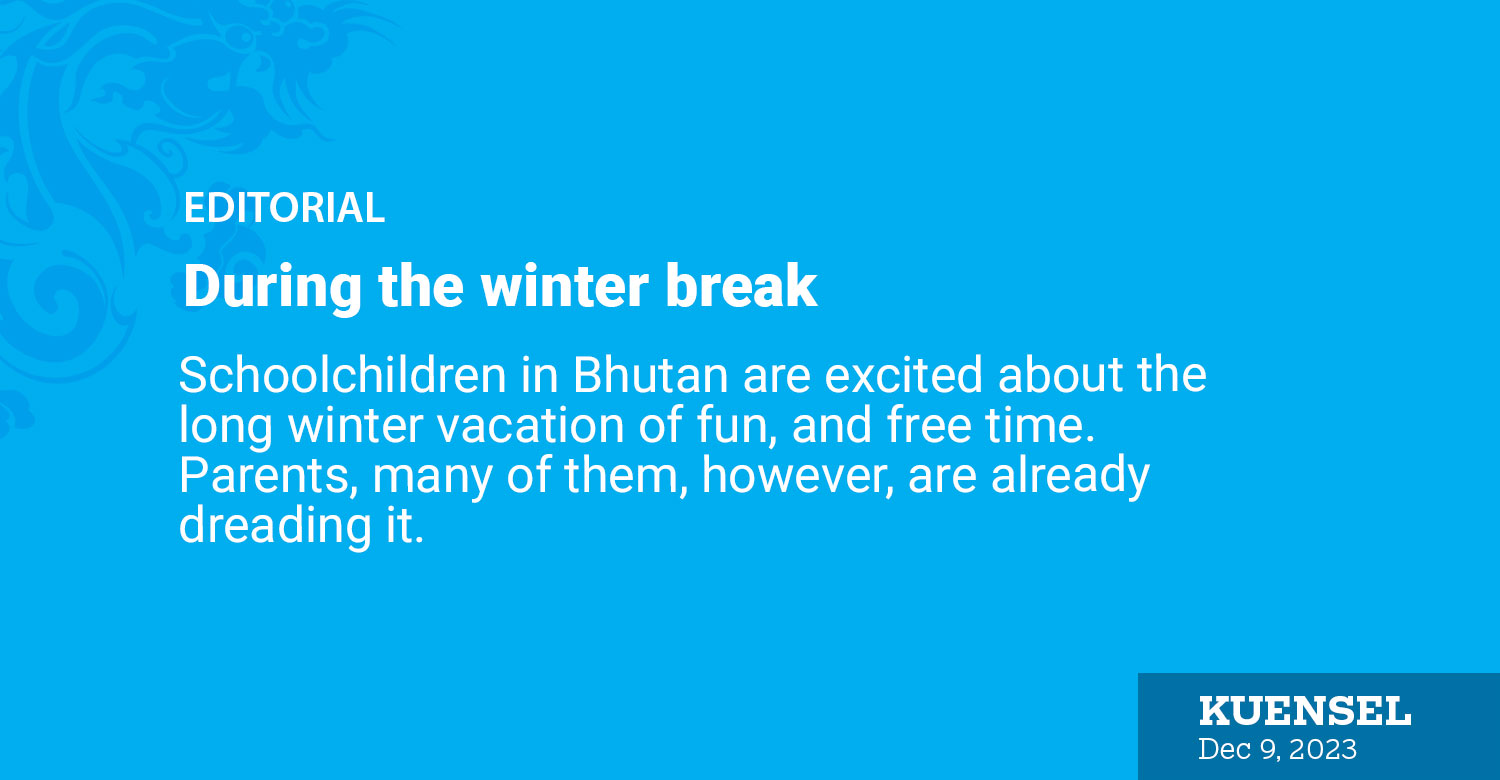Schoolchildren in Bhutan are excited about the long winter vacation of fun, and free time. Parents, many of them, however, are already dreading it.
A little over 170,000 schoolchildren in Bhutan will be home for about two months starting December 18 when the academic session for 2023 formally comes to a close. For those in boarding schools and institutions, the homecoming after a year is even more special.
However, for children, it does not take long for excitement to turn into boredom leaving parents exploring avenues to keep children entertained, but often failing. Research points out that for some children, school breaks are a stressful and impoverished period of isolation, boredom, and inactivity.
The quest to keep children excited and entertained leaves many parents stressed and overwhelmed. Parents in urban communities are at an advantage compared with parents in rural communities, as several activities are made available targeting children on school breaks. Different agencies, formal and informal groups organise a variety of activities around sports, dance and music, art etc., to ‘productively engage’ children during the break. Unfortunately, for a vast majority of the children, their remote locations, financial implications, and other obligations deny them access to such programmes and activities.
While the debate continues over the risks and benefits of smartphone use by children and adolescents, our children are devout users of smartphones and parents are often caught looking the other way rather than limiting their screen time. Organisations like UNESCO are warning parents and children of the negative impact on children’s emotional stability and other detriments from unmonitored screen time.
The increasing number of idle and bored adolescents and youth in the community also present a worrisome pattern of a spike in youth-related crimes, violence, and substance and alcohol abuse with such detrimental action adding pressure on our law enforcement agency.
For some of our children, the school break is an opportunity to earn from temporary jobs or support family in providing community services such as maintaining farm roads, irrigation canals etc. Unfortunately, it also makes them vulnerable to abuse and exploitation. The result being many children do not come back to school the following year.
But in hindsight, the next two months also present an opportunity for parents, and family members, including but not limited to community members, to renew and strengthen the social fabrics that have become particularly crucial, at the moment, for our children and youth. Our children’s expectations, values, and priorities vastly differ from those of us parents. A generation gap is certainly visible. However, the parents’ role has not diminished if not emerging with a renewed urgency to enhance the social dimension of face-to-face interaction with our children. This would secure the social cohesion in our homes and our community that is based upon moral values, principles, bonds, norms, and customs.
In the words of our historian Lopen Karma Phuntsho (PhD), “There is no guru (teacher) dearer than one’s father and no divinity higher than one’s mother.”


